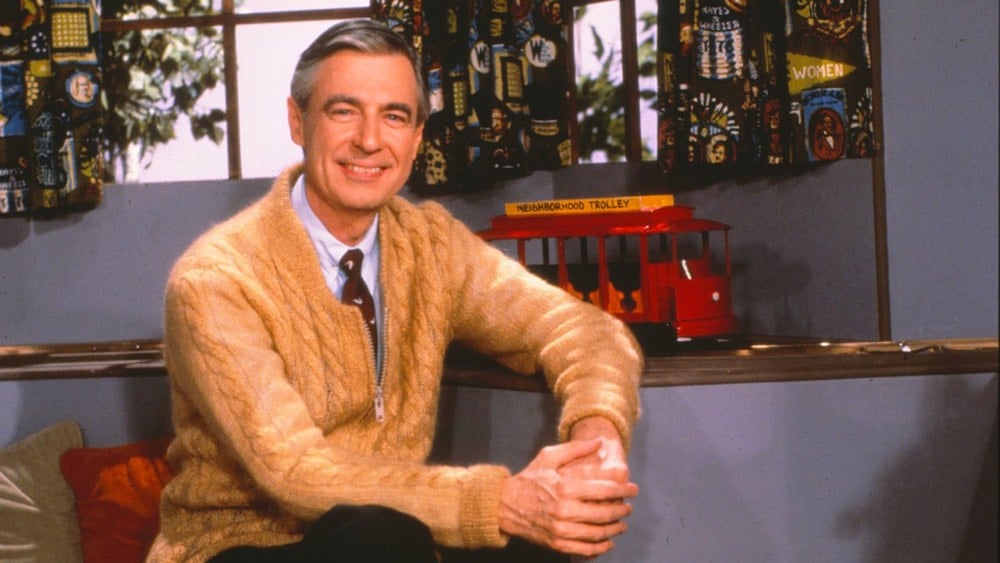What Would Mister Rogers Do?

In 1998, Tom Junod wrote an article for Esquire about Fred Rogers. It is a particular favorite of mine and if you’ve never read it, I would recommend setting aside some time soon to do so.
Koko weighed 280 pounds because she is a gorilla, and Mister Rogers weighed 143 pounds because he has weighed 143 pounds as long as he has been Mister Rogers, because once upon a time, around thirty-one years ago, Mister Rogers stepped on a scale, and the scale told him that Mister Rogers weighs 143 pounds. No, not that he weighed 143 pounds, but that he weighs 143 pounds…. And so, every day, Mister Rogers refuses to do anything that would make his weight change — he neither drinks, nor smokes, nor eats flesh of any kind, nor goes to bed late at night, nor sleeps late in the morning, nor even watches television — and every morning, when he swims, he steps on a scale in his bathing suit and his bathing cap and his goggles, and the scale tells him that he weighs 143 pounds. This has happened so many times that Mister Rogers has come to see that number as a gift, as a destiny fulfilled, because, as he says, “the number 143 means ‘I love you.’ It takes one letter to say ‘I’ and four letters to say ‘love’ and three letters to say ‘you.’ One hundred and forty-three. ‘I love you.’ Isn’t that wonderful?”
The article has been adapted into a movie called A Beautiful Day in the Neighborhood; it stars Tom Hanks and will be out in two weeks time. Here’s a recently trailer — my skepticism about Tom Hanks playing Rogers is fading:
Junod recently wrote a piece about his friendship with the television icon, which began with the writing of the Esquire piece, continued until Rogers’ death in 2003, and clearly still reverberates in his life.
What would Fred Rogers — Mister Rogers — have made of El Paso and Dayton, of mass murder committed to fulfill the dictates of an 8chan manifesto? What, for that matter, would he have made of the anti-Semitic massacre that took place last fall in his real-life Pittsburgh neighborhood of Squirrel Hill? The easy answer is that it is impossible to know, because he was from a different world, one almost as alien to us now as our mob-driven world of performative slaughters would be to him. But actually, I think I do know, because when I met him, one of the early school shootings had just taken place, in West Paducah, Kentucky — eight students shot while they gathered in prayer. Though an indefatigably devout man, he did not attempt to characterize the shootings as an attack on the faithful; instead, he seized on the news that the 14-year-old shooter had gone to school telling his classmates that he was about to do something “really big,” and he asked, “Oh, wouldn’t the world be a different place if he had said, ‘I’m going to do something really little tomorrow’?” Fred decided to devote a whole week of his television show, Mister Rogers’ Neighborhood, to the theme of “little and big,” encouraging children to embrace the diminutive nature of their bodies and their endeavors — to understand that big has to start little.
The whole piece is great, but the latter half, where Junod writes about Rogers’ complicated legacy, the failure of his grand task, and how the people who idolize him today might nevertheless find it difficult to follow his example…well, I’m going to be thinking about that for awhile.





Stay Connected